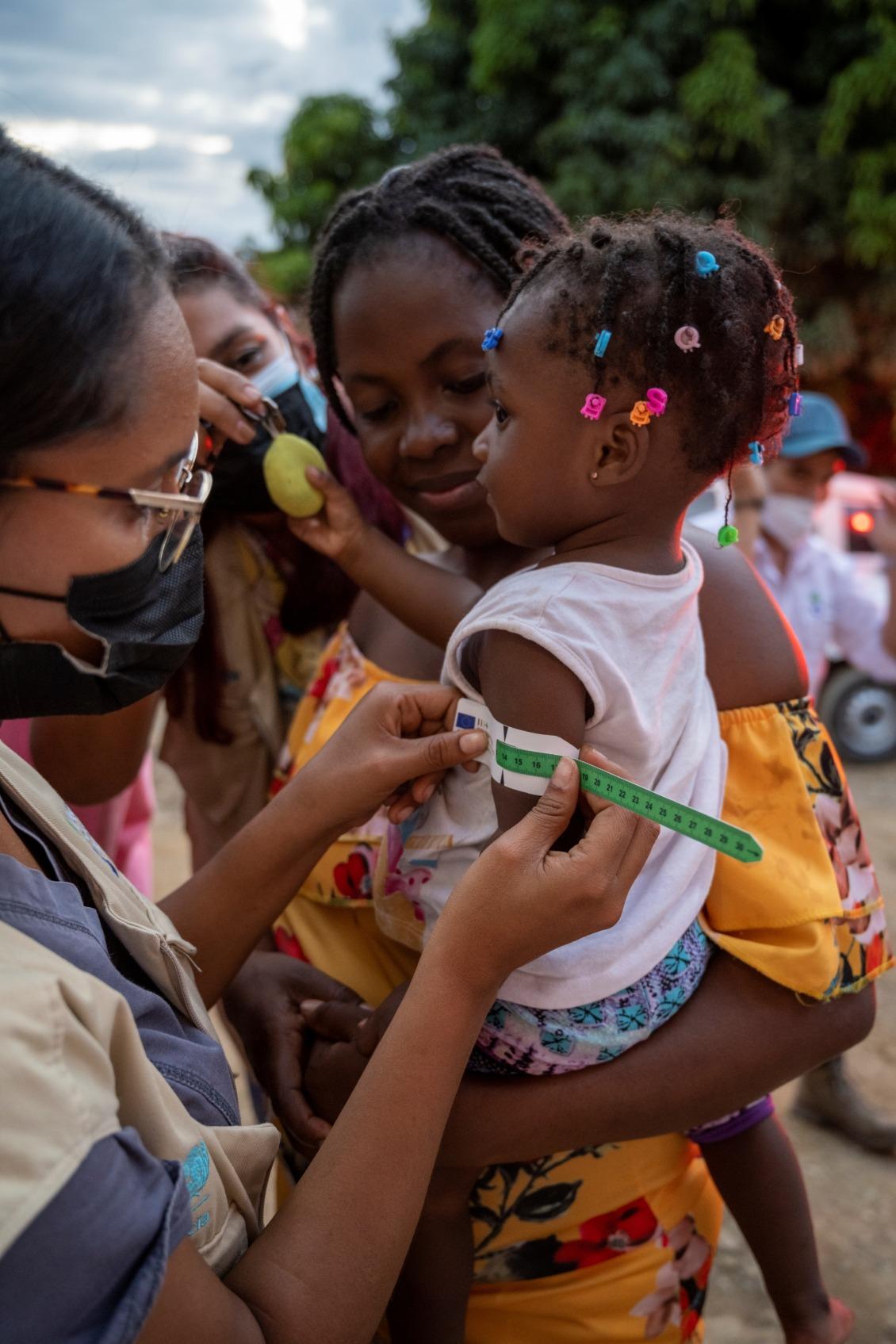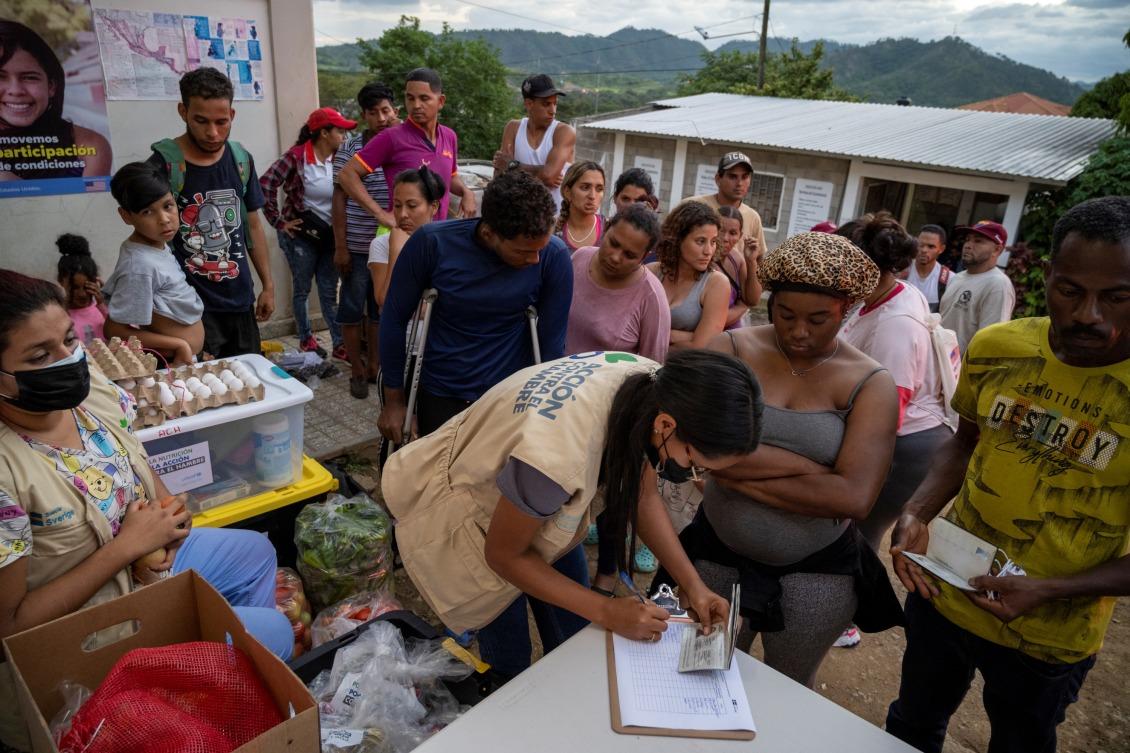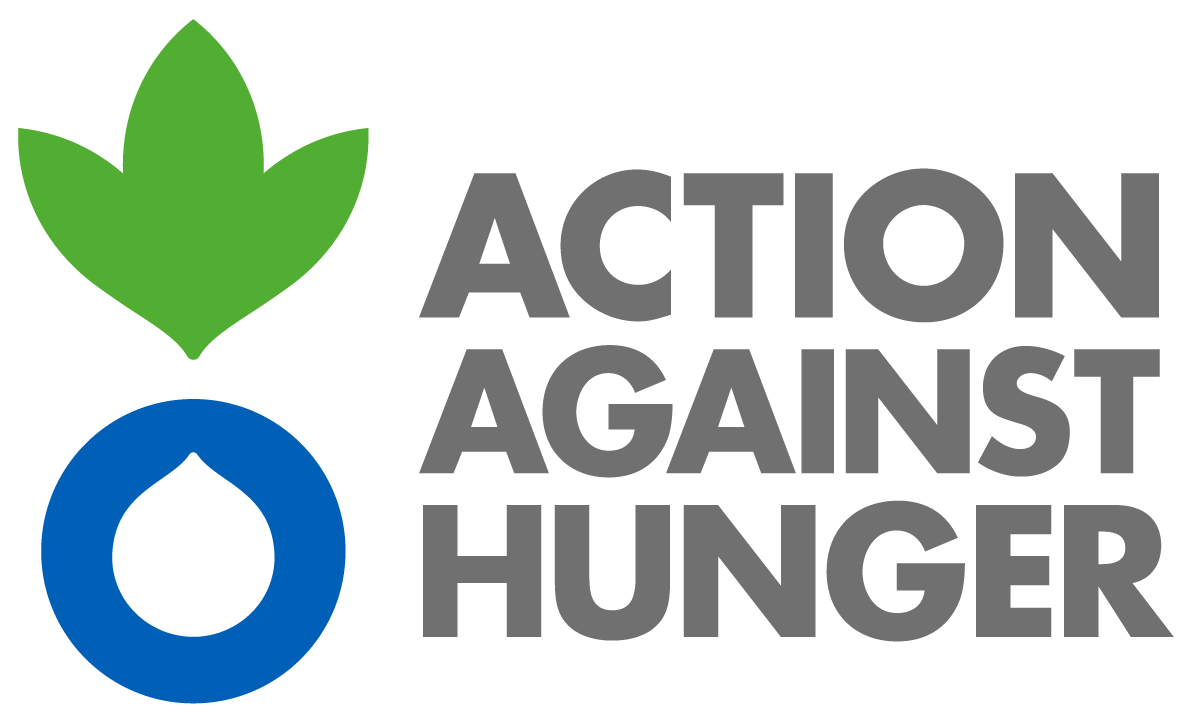Need for Humanitarian Assistance Grows As Migration in Central America Reaches New Highs
Growing Poverty and Hunger in the Region Are Driving Displacement
October 30, 2023 /3BL/ - Migration on the southern border of Honduras has reached record numbers and humanitarian aid has failed to keep pace, warned Action Against Hunger, a global leader in the fight against hunger.
Despite the numerous risks along the migration route, Honduras has become a transit territory for migrants from South America, the Caribbean, and other continents, with 48,953 people entering Honduras in July alone, four times more than in the same month in 2022. So far in 2023, the reported number of people migrating through Honduras without formal documentation is 20 times more than in 2021, and triple the number reported in 2022.
From January to August 2023, 196,120 people entered Honduras without formal documentation. More than 140 nationalities were represented, with the majority (137,304) from Venezuela, followed by Cuba (92,950), Ecuador (50,537), Haiti (31,300), Colombia (6,887), and China (6,858). Many more people are entering the country without being recorded in official migration statistics, so the true scale of the crisis is not fully known.
While many are driven to leave their homes by violence, political crises, limited opportunities to earn a living, and hunger, migration outside of formal systems is particularly dangerous.
“We left on February 6, the journey began, but when we reached the Darien jungle…just thinking about it makes me want to cry. It’s ugly. I wouldn’t do it again, and I wouldn’t wish what we went through on anyone: carrying our children, seeing the dead, going hungry, drinking river water because there is no other, it’s sad,” said Jackeline Cedeño, a migrant from Ecuador.
In Latin America and the Caribbean, mixed migration flows represent a dynamic and interconnected reality, where many places simultaneously are countries of origin, transit, or even destination and return destinations for displaced people.
“Across Latin America, poverty and hunger have been increasing for years,” said Benedetta Lettera, Action Against Hunger’s Head of Operations for Latin America. “People face inflation and rising food prices, triggered by the COVID-19 pandemic and the war in Ukraine. In turn, these worsening living conditions leave people with no choice but to migrate.”
Together, these factors make families more vulnerable and reduce their ability to cope with the cost-of-living crisis and other shocks. The few who do find work – especially single parent households led by women – often cannot earn enough income to cover their basic needs and to provide better future opportunities for their children. Seeking employment and more stable lives, families flee their homes.
As overall displacement increases, Action Against Hunger is deeply concerned about the growing number of families on the move, often with children. Many migrant children, especially from Ecuador and Haiti, arrive in Honduras malnourished and in urgent need of special care. Food, shelter, toilets, clean water, and hygiene supplies are among the most urgent needs for displaced people.
“Migrants are suffering every day, but humanitarian funding is not keeping pace with their needs,” said Lettera. “We’re urging donors to step up. Families who are forced to flee face an increased risk of violence, trafficking, abuse and extortion. They are deserving of assistance and support, and they have never needed it more than now.”
As a leader of the LIFE-Honduras Consortium, Action Against Hunger provides humanitarian assistance both inside and outside of temporary migration shelters. The organization detects and treats child malnutrition among displaced minors. To date this year, Action Against Hunger has assessed 9,537 children under five years old for malnutrition and provided them with food supplements. Additionally, 233,205 people were served at Action Against Hunger hydration points, where they were able to access clean water and safe sanitation facilities. The organization also provides support for health services and cash transfers for families in need.
About the LIFE-Honduras Consortium
The LIFE-Honduras Consortium is led by Action Against Hunger, the United Nations Children’s Fund (UNICEF), Pure Water for the World, ChildFund, the Adventist Development and Relief Agency (ADRA), and the Relief of Suffering Foundation (FAS). Together, the consortium provides emergency support to displaced populations in Danlí, Trojes, Choluteca, El Paraíso, Central District, Machuca, and Ocotepeque, focusing on child protection, education, water, sanitation and hygiene, nutrition, health and social protection through the provision of multi-purpose cash transfers.
About Action Against Hunger
Action Against Hunger leads the global movement to end hunger. We innovate solutions, advocate for change, and reach 28 million people every year with proven hunger prevention and treatment programs. As a nonprofit that works across 55 countries, our 8,900 dedicated staff members partner with communities to address the root causes of hunger, including climate change, conflict, inequity, and emergencies. We strive to create a world free from hunger, for everyone, for good.




